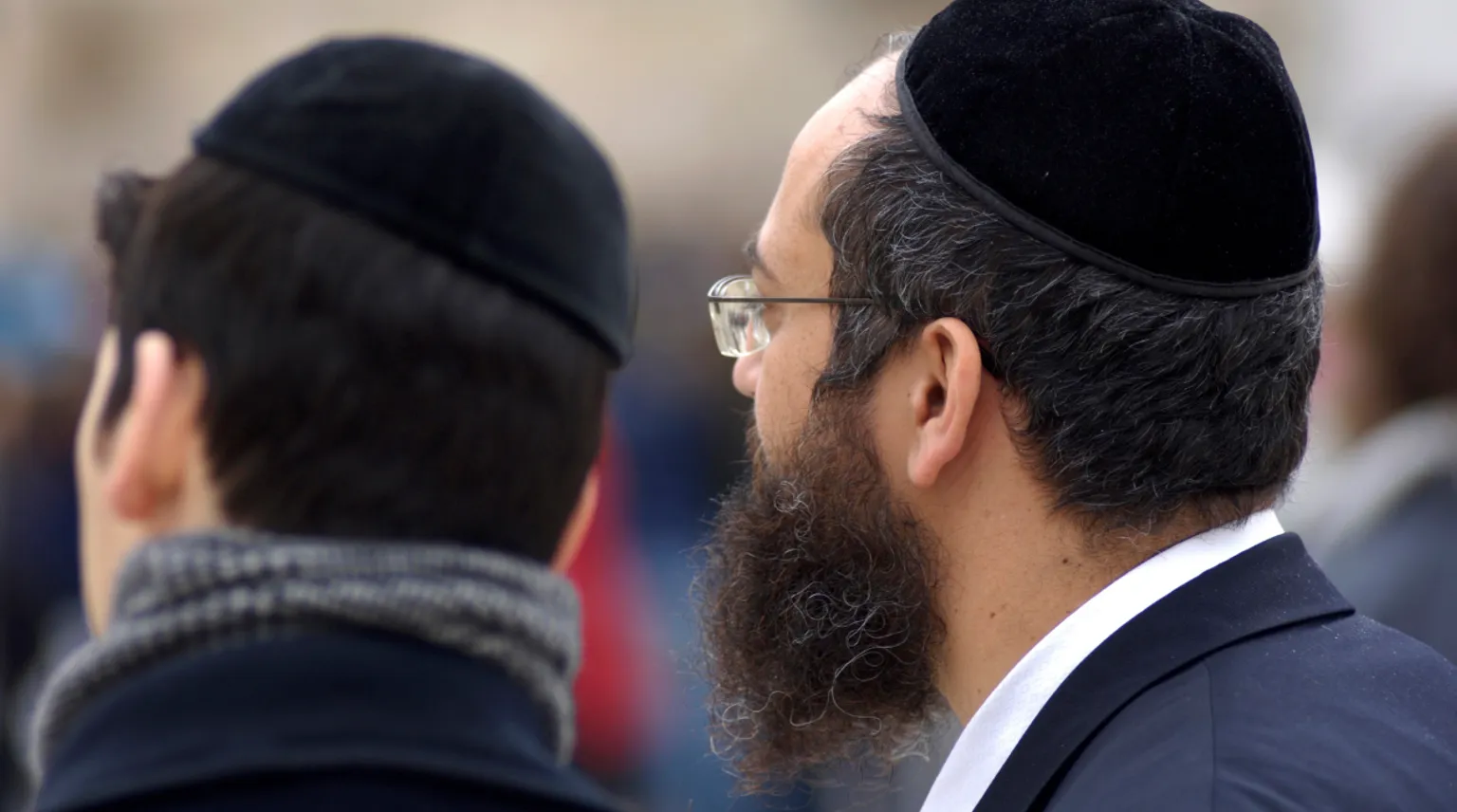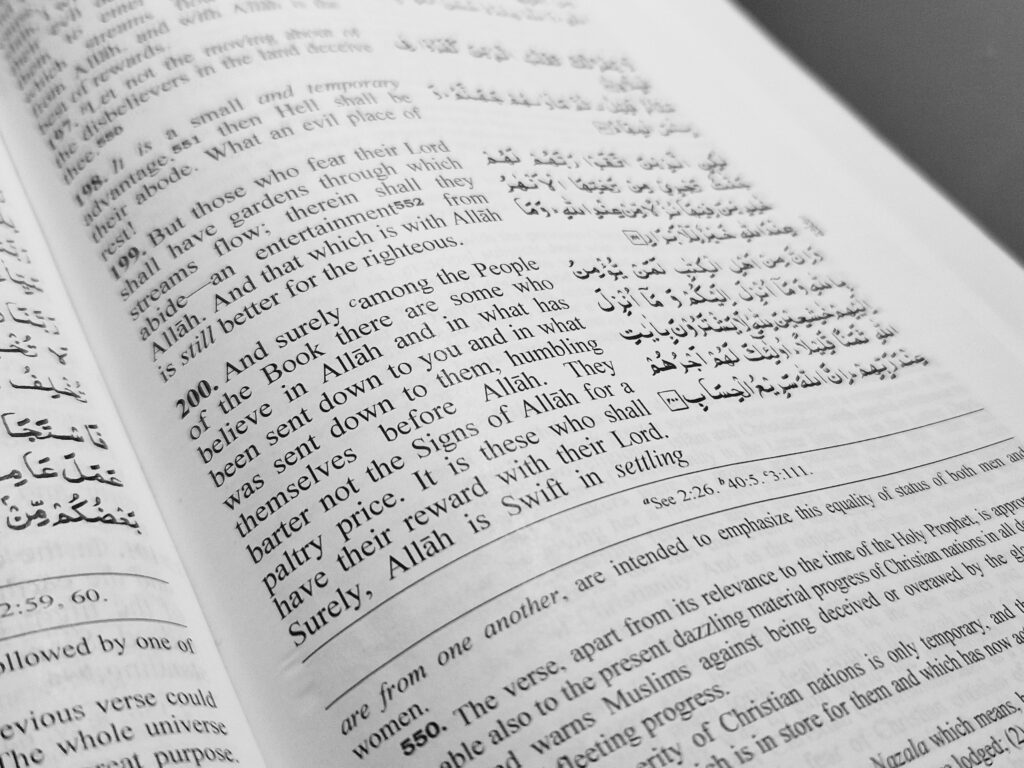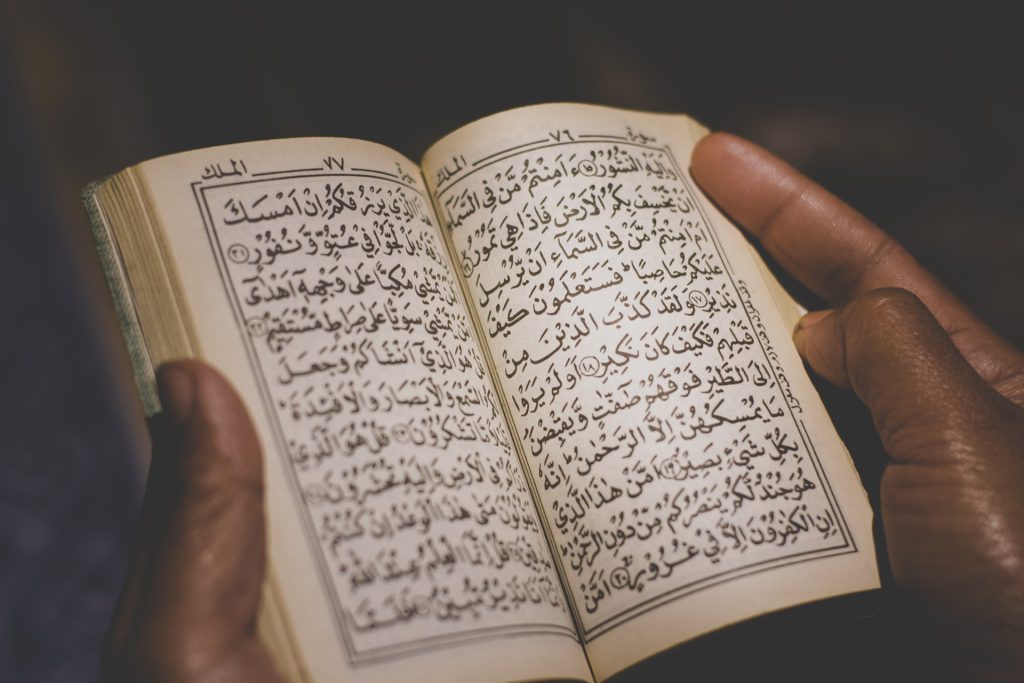Are Jews Hated in Islam?

By Missionary Imran Khalid
Introduction
There have been many misunderstandings of Islam over the past 100 years. A major misunderstanding is that Islam promotes hatred and killing of Jews. This criticism has been exacerbated firstly, by geopolitical tensions in the modern era between Israel and Muslim-majority countries and further, by the actions of so-called Muslims in committing atrocities against Jewish populations, such as the attacks against synagogues in Europe by extremists.
On top of this, journalists and historians have frequently mischaracterised Islamic teachings, whether through ignorance or prejudice, citing anti-Muslim activists by quoting various verses of the Holy Quran and Hadith narrations out of context in an attempt to prove that Muhammad (sa) ordered Muslims to kill or fight the Jews or condemned Jews and denied them their rights.
So what is the reality? How did the founder of Islam, the Prophet Muhammad (sa) treat Jews? And what does the Quran teach about how Muslims should behave towards them?
The Universality of Islam
Islam is not a new religion. It is, in essence, the same message and guidance which Allah revealed to all prophets before Prophet Muhammad (sa). As such, it is the only faith among world religions to require its adherent to believe in the truth of other religious founders. As such, Islam makes mandatory belief in Moses, Jesus and other Israelite prophets, as well as pre-Judaic prophets held in reverence by them, such as Abraham and Isaac.
Indeed, Jews are regarded as one of the groups of people described as ‘People of the Book’. This is a title given to any religious group that has received revelation from God, though it has been applied most in the Levant, in relation to Jews and Christians.
A Muslim’s faith is incomplete without believing in the truth of all prophets of God and all books of Divine origin, including the Torah and the Psalms of David. No other ancient religious scripture can compare to the Holy Quran in terms of respecting other faiths, for this reason.
It is inconceivable then that Islam should summarily condemn Jews, when it regards their original teaching as divine in origin. To take a closer look, let’s look at what the Quran says about Judaism as well as Jews, and let’s take a look at how the Prophet of Islam (sa) treated them.
The Quran on Judaism and Jews
Most interestingly, Islam and Judaism share similar values, guidelines, and principles. In fact, Moses (as), the most important prophet of Judaism, considered a messenger of Allah by Muslims, is the most frequently mentioned individual in the Holy Quran, his name being mentioned 135 times. He is also referred to as Kalimullah—or the “one who conversed with God.”

The Holy Quran dedicates a whole chapter (Chapter 17) to the Bani Isra’il—the Children of Israel—and considers the Israelites to have been a nation on whom God bestowed favours. There are 43 references to the Israelites in the Quran and many more in the Ahadith. Of the 26 prophets mentioned by name in the Holy Quran, more than 20 are Israelite prophets.
Children of Israel or Jews?
Interestingly, the Quran always draws a distinction between the Children of Israel and the Jews. The Children of Israel refer to the Twelve Tribes of Israel, of whom the current day Jews constitute two – the tribes of Judah and Benjamin – who formed the southern kingdom of Judah, at the time of Jesus (as). The Quran therefore accurately distinguishes between talking of the Children of Israel by referring to all twelve tribes, and the Jews, who constitute a small proportion of them:
“Surely, the Believers, and the Jews, and the Christians and the Sabians — whichever party from among these truly believes in Allah and the Last Day and does good deeds — shall have their reward with their Lord, and no fear shall come upon them, nor shall they grieve.”
Holy Quran 2:63
“So go to Pharaoh, and say, ‘We are the Messengers of the Lord of the worlds, ‘To tell thee to send the children of Israel with us.’”
Holy Quran 26:17-8
The Quran never mixes up the two, always maintaining the distinction that Moses (as) was sent to the Children of Israel, never to the Jews, who did not at the time exist as a religious entity. Referring to followers of Moses (as) who had rejected Jesus (as), however, it always refers to them accurately as the Jews.
Are Jews Condemned by the Quran?
The Quran repeatedly praises noble characteristics while condemning injustice—irrespective of the person or people performing the act. For example, addressing all mankind—Muslim and non-Muslim—the Quran declares:
“Surely, We have created man in the best make; Then, if he works iniquity, We reject him as the lowest of the low; Except those who believe and do good works; so for them is an unending reward.”
Holy Quran 95:5-7
It is a plain fact that the Quran condemns certain acts that Jews of the past committed. It particularly condemns the following wrongful actions committed by some Jews:
- Rejection of Jesus (as) and the slandering of his mother as an adulterer
- Various attempts to kill prophets who came to them (this is documented in the Old Testament itself)
- Their habit of turning people away from God’s path
- Their taking of people’s wealth through the practice of interest
- Their claim to have killed the Prophet Jesus (as)
“Then, because of their breaking of their covenant, and their denial of the Signs of Allah, and their seeking to kill the Prophets unjustly, and their saying: ‘Our hearts are wrapped in covers,’ — nay, but Allah has sealed them because of their disbelief, so they believe not but little — And because of their disbelief and their uttering against Mary a grievous calumny, And their saying, ‘We did kill the Messiah, Jesus, son of Mary, the Messenger of Allah;’…
So, because of the transgression of the Jews, We forbade them pure things which had been allowed to them, and also because of their hindering many men from Allah’s way, And because of their taking interest, although they had been forbidden it, and because of their devouring people’s wealth wrongfully. And We have prepared for those of them who disbelieve a painful punishment.”
Holy Quran 4:156-162
The Quran however, authored by God who is Al-Haqq (The Truth), always acknowledges goodness just as it acknowledges sin. Thus, in the immediate following statement, the Quran clarifies that this censure does not mean that all Jews are bad people, worthy of punishment. It states:
“But those among them who are firmly grounded in knowledge, and the believers, believe in what has been sent down to thee and what was sent down before thee, and especially those who observe Prayer and those who pay the Zakat and those who believe in Allah and the Last Day. To these will We surely give a great reward.”
Holy Quran 4:163
This is clarified by other statements of the Quran that follow the same pattern:
“They are not all alike. Among the People of the Book there is a party who stand by their covenant; they recite the word of Allah in the hours of night and prostrate themselves before Him. They believe in Allah and the Last Day, and enjoin what is good and forbid evil, and hasten, vying with one another, in good works. And these are among the righteous. And whatever good they do, they shall not be denied its due reward; and Allah well knows the God-fearing.”
Holy Quran 3:114-6
In this verse, no mention is made of belief in Islam or the Prophet Muhammad (sa), yet despite this, certain people among the People of the Book are praised as standing by their covenants. This is further reinforced by other verses of the Quran, that state:
“Among the People of the Book there is he who, if thou trust him with a treasure, will return it to thee; and among them there is he who, if thou trust him with a dinar, will not return it to thee, unless thou keep standing over him. That is because they say, ‘We are not liable to blame in the matter of the unlearned;’ and they utter a lie against Allah knowingly.”
Holy Quran 3:76

This is similar to another verse of the Quran, which praises such Jews who uphold and follow the teachings of Prophet Moses (as):
“And of the people of Moses there is a party that exhorts (people) to truth and does justice therewith.”
Holy Quran 7:160
Thus, the Holy Quran acknowledges the good and the bad in the behaviour of every person. Especially in regards to the Jews it encourages Muslims to behave well with peaceful Jews and indeed with all people who seek peace. This is precisely what one would expect from the word of God:
“Allah forbids you not, respecting those who have not fought against you on account of your religion, and who have not driven you forth from your homes, that you be kind to them and act equitably towards them; surely Allah loves those who are equitable.”
Holy Quran 60:9
How Prophet Muhammad (sa) Treated Jews
By studying the life and noble character of the Holy Prophet Muhammad (sa), we find that his practice reflected every aspect of the teachings of the Holy Quran. He always respected the rights of others whether Muslim or not and always encouraged his followers to uphold true justice and care for others rights. His respect for those of every faith included those of Jewish origin. We find many such examples in the life of the Holy Prophet (sa).
Honouring a Jewish Funeral Procession
The Holy Prophet Muhammad (sa) taught and practiced universal compassion and empathy:
Narrated Jabir bin `Abdullah: A funeral procession passed in front of us and the Prophet (sa) stood up and we too stood up. We said, “O Allah’s Messenger! This is the funeral procession of a Jew.” He said, “Whenever you see a funeral procession, you should stand up.” It also narrated that: When the Prophet was told that it was the coffin of a Jew, he said, “Was he not a human being or did he not have a soul?”
Sahih al-Bukhari 1311 and Sahih Muslim 961a, 961b
Taking Good Care of Neighbours
The Holy Prophet (sa) laid great emphasis on developing good relations with neighbours and taught his companions to take care of their neighbours so much so that he said that If someone cooks food, he should make more to fulfil his duty and right towards his neighbour. Important to note is that nowhere does it mention that you should only care for Muslim neighbours.

In fact, we find a narration which further clarifies this point. It is narrated by Mujahid that:
I was with ‘Abdullah ibn ‘Amr while his slave was skinning a sheep. He said, ‘Boy! When you finish, start with the Jewish neighbour.’ A man there exclaimed, ‘Jewish? May Allah correct you!’ He replied, ‘I heard the Messenger of Allah, may Allah bless him and grant him peace, recommend that we treat our neighbours well until we feared (or we thought) that he would order us to make them our heirs.’
Al-Adab Al-Mufrad 115
The Holy Prophet Muhammad (sa) and his Companions left the best examples for us to follow to establish true peace and harmony in our societies.
Ensuring Civic Rights for Jews
When the Prophet Muhammad (sa) travelled to Medina and was made Head of the State, because he was a man of trustworthiness and truthfulness, who was chosen by the Jews and Muslims living there. He made a treaty with the Jews based completely on fairness and equal opportunity. It was known as the Charter of Medina and is the first clear example of secular rule in the world. In this charter, the Prophet Muhammad (sa) set out the guidelines by which pagans, Jews and Muslims should live together in a religiously diverse arena, in peace and harmony. According to the charter, Jews and Muslims were to live in Medina as a single community, despite religious differences, each supporting the other against their enemies:
6.2 The Jews of Banu ‘Awf are one community with the believers, the Jews have their religion and the Muslims have theirs, their freedman and their persons except those who behave unjustly and sinfully, for they hurt but themselves and their families. The same applies to the Jews of the Banu al-Najjar, Banur al-Harith, Banu Sa’ida, Banu Jusham, Banu al-’Aws, Banu Tha’laba, and the Jafna, a clan of the Tha’laba and the Banu al-Shutayba. Loyalty is a protection against treachery…
(Morrow. J. A; “The Covenants of the Prophet Muhammad with the Christians of the World” 1971; p. 30-31)
6.5: The Jews must bear their expenses and the Muslims their expenses. Each must help the other against anyone who attacks the people of this document. They must seek mutual advice and consultation, and loyalty is a protection against treachery…
We find a narration which beautifully reflects the Islamic teaching and the respect to others whatever background they belong from, a minor act but which bears an important message for all Muslims, in fact for all mankind. It is narrated by Jabir, that:
We were with the Prophet (sa) when a funeral passed by and he stood up for it. When we went to carry it, we found that it was a funeral of a Jew. We therefore said: “Messenger of Allah, this is the funeral of a Jew.” He said: “Death is a fearful event, so when you see a funeral, stand up.”
Sunan Abi Dawud 3174
The spirit of brotherhood with Jews during Muslim rule started in the 7th century CE but did not end there. With the spread of Islam from the Arabian peninsula, and its “live and let live” approach to other faiths, it was not long before the persecuted minorities in the Byzantine empire, Jews in particular, were clamouring for liberation by Muslims from the tyranny of Heraclius, the Christian Caesar. Heraclius subjected them to horrendous persecution, including the massacre of Jews in Judea on 21st March 630, decimating the communities of Galilee and Jerusalem. It was the Muslims who rescued Jews from these horrendous conditions, are permitted them religious freedom. A much later example relates to what would come to be known as a high point of Jewish culture in the Iberian peninsula, under Muslims rule of Andalusia.
Have Muslims Been Ordered to Fight Jews?
Some non Muslims present different narrations to prove that the Holy Prophet Muhammad (sa) ordered Muslims to fight Jews. One such narration, which has been misunderstood, is:
Abu Huraira reported that Prophet Muhammad (sa) said: The last hour would not come unless the Muslims will fight against the Jews and the Muslims would kill them until the Jews would hide themselves behind a stone or a tree and the stone or the tree would say: ‘O Muslim, O servant of Allah, there is a Jew behind me; come and kill him; except for the tree Gharqad, for it is the tree of the Jews.’
Sahih Muslim 2922
This tradition which is presented by non Muslims concerns a prophecy of political circumstances relating to a then future situation and should not be taken as a standing command to Muslims to kill Jews. Rocks or stones in Islamic literature refer to nations and trees refer to particular families. It bears deeper meaning and understanding, which must be understood in the full light of Islamic teachings. This narration has nothing to do with day-to-day Muslim-to-Jew relations.
It is true that in the modern day, with injustices committed by the state of Israel from its very founding, with the ethnic cleansing of the Palestinian population, as documented by Israeli historians, tensions between Muslims and Jews have reached a height not seen for centuries. However, Muslims would do well to realise and recognise the teachings of the Quran at such a juncture; both the Quran and the Prophet Muhammad (sa) have consistently spoken up for justice, while condemning injustice—regardless of the person or people committing the act. As the Quran clarifies:
“O ye who believe! Be strict in observing justice, and be witnesses for Allah, even though it be against yourselves or against parents and kindred. Whether he be rich or poor, Allah is more regardful of them both than you are.”
Holy Quran 4:136
“O ye who believe! Be steadfast in the cause of Allah, bearing witness in equity; and let not a people’s enmity incite you to act otherwise than with justice. Be always just, that is nearer to righteousness. And fear Allah. Surely, Allah is aware of what you do.”
Holy Quran 5:9
If Muslims across the world hope for justice for other Muslims, they should look to set an example for the world to follow in adherence to justice. Through such an example, the behaviour of other nations towards them will begin to change for the better.
More articles
Contact
National Outreach Department:181 London Rd, Morden SM4 5PT, U.K.
Email: [email protected]Phone: 0208 6877804
@ 2025 Ahmadiyya Muslim Community, All Rights Reserved.